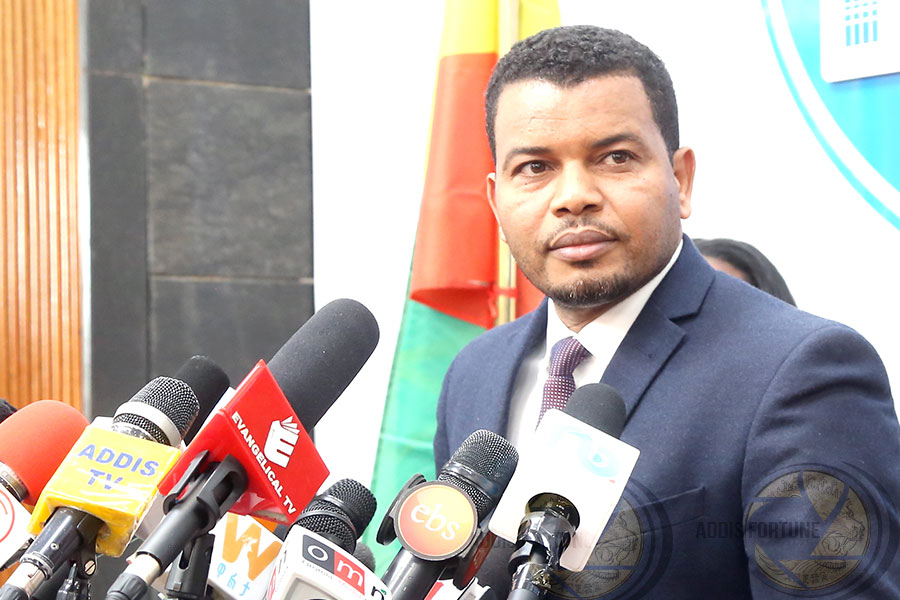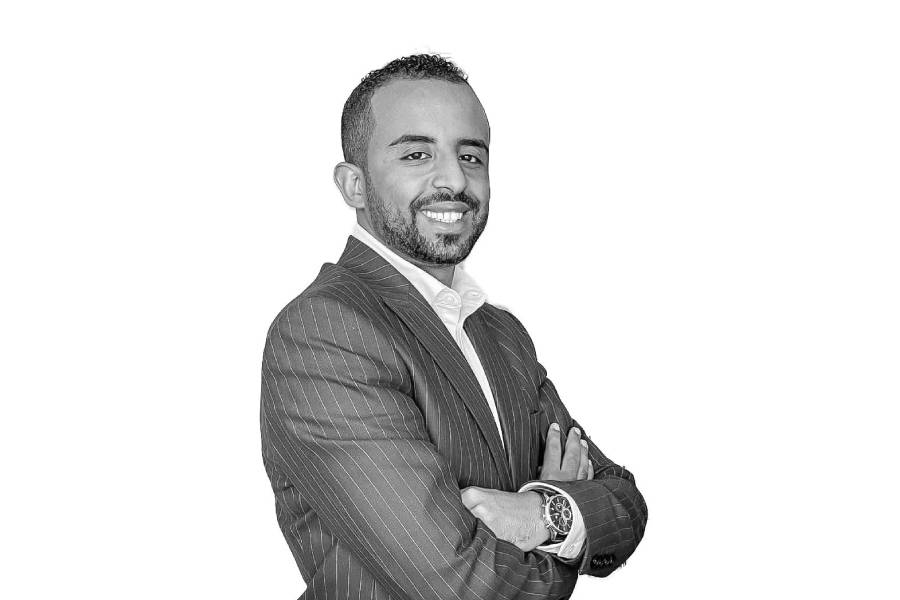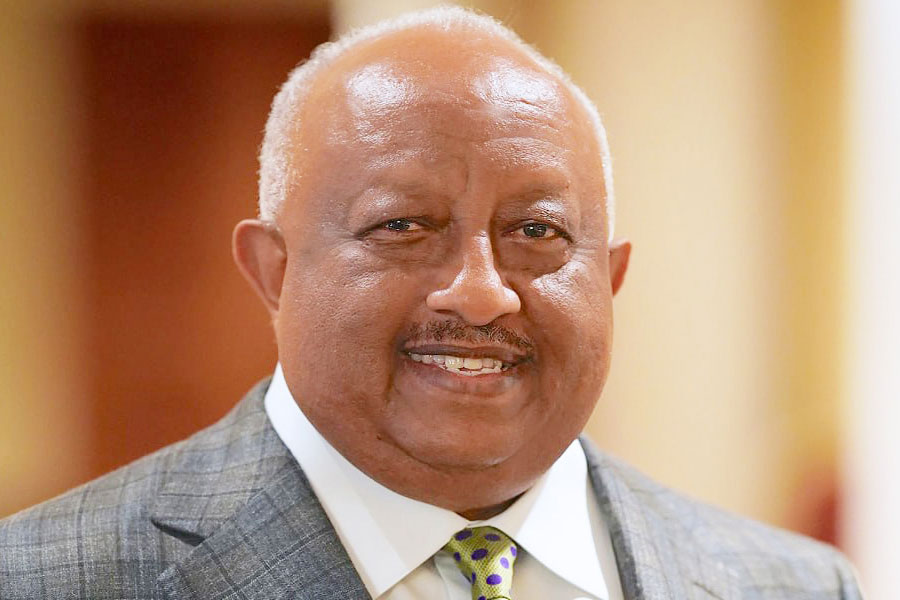
Aug 7 , 2021
By Eden Sahle
Frehiwot Tamiru, CEO of Ethio Telecom, sat for an interview on TV with a journalist that left a great deal to be desired in the aspect of professionalism. Her charming smile, confidence, and humble answers even to inappropriate questions were most inspiring, nonetheless, and exhibited her leadership skills.
In his unprofessional interview approach, the journalist seemed to question her leadership skills because she is not a mother. This may not be surprising given what the usual interviews in Ethiopia look like, with public media houses particularly more interested in asking passersby on the streets leading questions to expound on every issue imaginable.
Like most of his colleagues, the journalist who interviewed Frehiwot lacked the ability to ask intelligent questions that might compel the CEO to share her experiences, the challenges of leading the most profitable state-owned enterprise in Ethiopia, and the reforms taking place. Instead, he decided to focus on her personal life and in the most negative way to boot.
In a strange, unclear way, most people in Ethiopia think every man and woman envision and desire the same thing and want to lead their lives just like the majority. Personal choices are often disregarded, although some want to follow a different path than the public generally expects of them. Navigating personal and professional life as a woman is not easy almost everywhere in the world, although the crisis is especially more profound and catastrophic in Ethiopia’s context. Women are subjected to various prejudices and biases that are a part of everyday life; they follow almost every woman in nearly every facet of life.
Frehiwot must have gone through many personal and professional challenges, as any woman, even the luckiest, would go through in her life journey. Whatever and whoever tried to hold her back from achieving great milestones, she clearly overcame them. Her genuine smile proves her confidence at having traversed through one of the most challenging societal organisations for upward mobility, especially for women, that is Ethiopian societies.
A few years back, when she first stepped in to lead the then state monopoly, I heard many great things about her from a friend that knew Frehiwot from HiLCoE School of Computer Science & Technology. She was vibrant and friendly with everyone, according to him. He was not surprised to see her take the driver seat to lead one of the most important state enterprises in the country. He believed she would bring to the Ethiopian telecom industry major changes. Frehiwot did not disappoint. She is assertively leading the partial liberalisation of Ethio telecom, has reduced high prices for services, introduced new products such as airtime credit, and oversaw the launch of Telebirr and increased its revenue.
She has much experience and advice to share if only the journalist had asked her pertinent questions. Most reporters and interviewers style of armchair journalism robs them of understanding that the public deserves more than the dissemination of hearsay. We rarely hear intelligent questions being asked by reporters or anchors to inform the public or just to let us learn from other people’s experiences and life journeys.
Following most local media, we are often left with unanswered questions and confusion than insight. Unfortunately, we have only a handful of individuals who understand journalism means exercising high standards of objectivity, the ability to research and dig deeper and refrain from undue attacks on anyone.
The media exists to inform the public with truthful information, not incite, bully, anger, confuse and create fear. As it has always been, we remain starved of an independent Fourth Estate that is accountable enough to enlighten the public with facts. Whether covering politics, social aspects or business matters, the media needs to present the public with relevant and trusted information that informs citizens and provides suitable analysis by speaking to relevant experts.
Most media outlets' common fabric of irresponsibility and impartiality is intertwined with an uninformed public relying on assumptions and rumours. The lack of professionalism in most media makes experts shy away from contributing to inform the public in their fields. Some people even follow the news to laugh at the things considered as news. They can hardly be blamed. Many journalists have left the profession to public mockery.
PUBLISHED ON
Aug 07,2021 [ VOL
22 , NO
1110]

Fortune News | Aug 17,2019

Radar | Jul 06,2019

Viewpoints | May 11,2019

Fortune News | Dec 21,2022

Advertorials | Aug 10,2023

Radar | Dec 08,2024

Fortune News | Apr 04,2020

Radar | Nov 16,2019

Radar | Feb 13,2021

Fortune News | Jan 27,2024

My Opinion | 131661 Views | Aug 14,2021

My Opinion | 128025 Views | Aug 21,2021

My Opinion | 125988 Views | Sep 10,2021

My Opinion | 123612 Views | Aug 07,2021

Dec 22 , 2024 . By TIZITA SHEWAFERAW
Charged with transforming colossal state-owned enterprises into modern and competitiv...

Aug 18 , 2024 . By AKSAH ITALO
Although predictable Yonas Zerihun's job in the ride-hailing service is not immune to...

Jul 28 , 2024 . By TIZITA SHEWAFERAW
Unhabitual, perhaps too many, Samuel Gebreyohannes, 38, used to occasionally enjoy a couple of beers at breakfast. However, he recently swit...

Jul 13 , 2024 . By AKSAH ITALO
Investors who rely on tractors, trucks, and field vehicles for commuting, transporting commodities, and f...

Jun 28 , 2025
Meseret Damtie, the assertive auditor general, has never been shy about naming names...

Jun 21 , 2025
A well-worn adage says, “Budget is not destiny, but it is direction.” Examining t...

Jun 14 , 2025
Yet again, the Horn of Africa is bracing for trouble. A region already frayed by wars...

Jun 7 , 2025
Few promises shine brighter in Addis Abeba than the pledge of a roof for every family...

Jun 29 , 2025
Addis Abeba's first rains have coincided with a sweeping rise in private school tuition, prompting the city's education...

Jun 29 , 2025 . By BEZAWIT HULUAGER
Central Bank Governor Mamo Mihretu claimed a bold reconfiguration of monetary policy...

Jun 29 , 2025 . By BEZAWIT HULUAGER
The federal government is betting on a sweeping overhaul of the driver licensing regi...

Jun 29 , 2025 . By NAHOM AYELE
Gadaa Bank has listed 1.2 million shares on the Ethiopian Securities Exchange (ESX),...